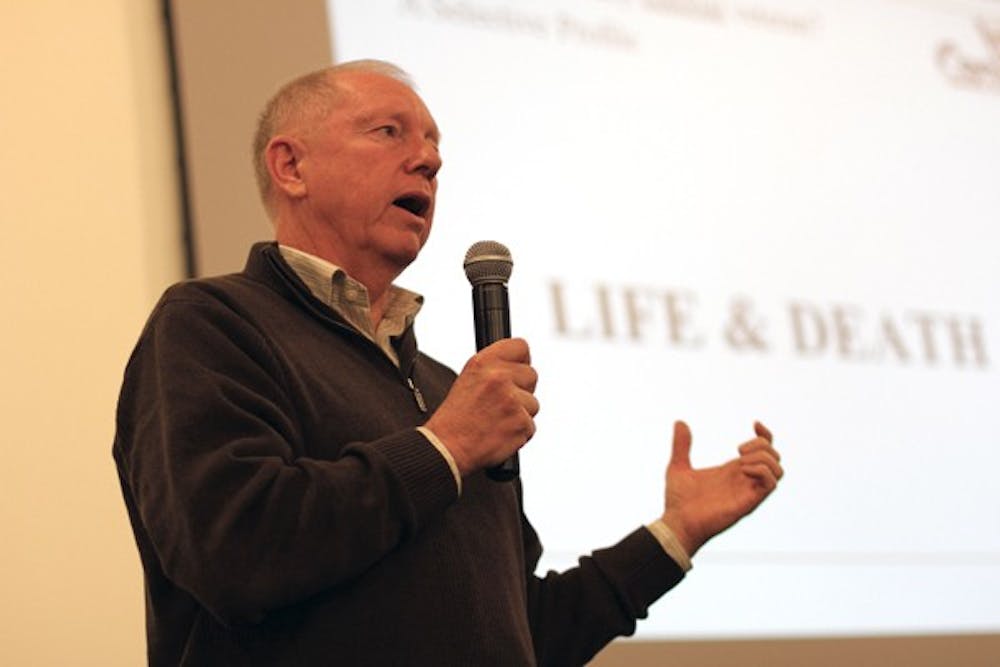College can be hard enough for the average student and even more difficult for those students who have recently returned from combat.
A seminar held on the Downtown campus Monday by ASU Veteran Services and VetSuccess on Campus aimed to address questions from about 50 faculty and staff about integrating veteran students back into civilian life and the classroom.
“We’ve talked about this from time to time with the Veterans Steering Committee,” said Christian Rauschenbach, the program manager of veterans’ services. “I think this presentation did effectively answer most of the questions we’ve been asked.”
Robert Stockman, Ph.D., the director of the Phoenix Veterans Center, led the discussion. Stockman served in the Marine Corps for 22 years, including a tour of duty in Vietnam.
Stockman drew on his experience with combat and returning to the civilian life as he addressed the combat veterans’ trauma.
However, Stockman emphasized not all veterans suffer from trauma.
“We have to learn how to deal with our own biases,” he said. “We oftentimes think of the negative side and I’m going to ask you not to think of the negatives when I talk about veterans.”
Stockman explained that combat veterans, who make up about 3 percent of undergraduate students nationwide, could suffer from traumatic brain injury, post-traumatic stress disorder and post-traumatic growth.
TBI is caused by a head injury that causes brain damage and college veterans typically suffer mild cases, Stockman said.
“Mild does not mean that the long term effects are not going to express themselves seriously,” Stockman said.
Stockman glossed over PTSD, saying the media has covered it, perhaps too much.
He said it is triggered by a life or death situation that triggers the “fight or flight” response.
“It’s very difficult to turn the ‘fight or flight’ response off when you come home,” Stockman said.
He told audience members the symptoms of PTSD fall into three major categories: re-experiencing traumatic events, avoiding anything related to the event and emotional arousal.
These symptoms affect both the veterans and those close to them.
“(Trauma) destroys trust,” Stockman said.
He added that along with PTSD comes PTG, which leads to changed priorities and a better appreciation of life.
Pamela Stewart, a lecturer in the School of Letters and Sciences, agreed that her students who were veterans did just as well as, if not better than, other students.
“Veterans are more conscientious,” Stewart said. “They don’t all get straight A’s but they seem to understand when I’m trying to explain something in useful terms.”
Stewart said she does see some veteran students who decline services from the Disability Resource Center but she said she understood the reasons behind the refusal.
Monday’s lecture was the first in a series of events centered on awareness and memorial for Veterans Week.
A seminar will also be held on the Tempe campus Tuesday to a predicted attendance of 70 people.
Reach the reporter at julia.shumway@asu.edu or follow @JMShumway on Twitter.
Like The State Press on Facebook and follow @statepress on Twitter.




